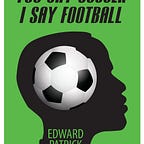The dark side of hormonal birth control
Female contraception has been one of the most empowering and revolutionary medical discoveries of our lifetimes. Giving women the ability to limit unwanted pregnancies has generated extraordinary social and economic benefits to countries all over the world like increases in postsecondary education, employment, and income; reductions in the gender pay gap*; improvements in mental health; reductions in poverty; and much more.
Sometimes, however, if it sounds too good to be true, it probably is.
* This is probably because most of the gender pay gap is not due to gender, but rather due to motherhood. Read more in this great article called “The Truth About The Gender Wage Gap”
It took a while, but eventually researchers started asking some interesting questions hormonal birth control. What does it actually do to the brain? How does it affect women’s moods, mating preferences, and energy levels? What are the unintended consequences of hormonal birth control that we need to worry about?
While today’s post is very different from my usual content, I’m sharing this information because a) I felt a moral obligation to do so and b) I have women in my life that I care about. Likewise, if you have women in your life that you love — daughters, sisters, friends, spouses, girlfriends — please share this with them as well.
“The pattern that we see in women who are on the birth control pill looks a lot like the pattern that we see in people who have undergone chronic stress.”
— Dr. Sarah Hill (episode 280 of the Jordan Harbinger Show)
The dark side(s) of birth control
In a podcast interview on The Jordan Harbinger Show, Dr. Sarah Hill talks about research she’s done that finds that women who are on hormonal contraceptives “rather than experiencing a big surge in the stress hormone cortisol in response to stressful things, they don’t have any increase in cortisol at all.”
As she states it, this is really isn’t normal because cortisol is, contrary to popular belief, a very useful and important hormone that “gets released in your body because it actually helps our bodies cope with stress… It shows up when stress is going on and it takes energy away from these things and then directs it all toward dealing with stressful situations.”
Quite worryingly, this phenomenon is often observed in people dealing with chronic stress, like people who suffer from PTSD or grew up in an environment of trauma. In fact, Dr. Hill cites additional studies that find that women on the birth control pill “have several biological markers of having experienced chronic stress” and “may have problems remembering emotionally nuanced events.”
“Cortisol isn’t what causes stress. Life is what causes stress. ”
— Dr. Sarah Hill (episode 280 of the Jordan Harbinger Show)
Another quirky side-effect of birth control is women’s preferences for partners. Research found that women on the pill preferred less masculine male faces — regardless of whether they were choosing a short-term sexual partner or a long-term committed romantic partner.
Another study found that going off the pill changed women’s sexual and relationship satisfaction, though the direction of the effect depended on the attractiveness of their partners.
In a different interview, Dr. Jolene Brighten shares how she (and other researchers) found that women on the pill are “more likely to be prescribed antidepressants” and are “at significantly increased risk for autoimmune disease, heart attack, thyroid and adrenal disorders, and even breast and cervical cancer.”
Sources and Further Reading
There is so much more on this topic that I haven’t touched on, which is why I want to urge you to do your own homework and check other resources for further reading and research.
Above all, make sure to share this information with women (and men!) in your life and talk to your doctor about birth control. I’m obviously not a medical professional, so I cannot and will not recommend any medical treatment.
- Podcast interview with Dr. Sarah Hill, leading researcher in the dynamic and rapidly expanding field of evolutionary psychology
- The book This Is Your Brain On Birth Control: The Surprising Science of Women, Hormones, and the Law of Unintended Consequences by Dr. Sarah Hill.
- Podcast interview with Dr. Jolene Brighten, nutritional biochemist and pioneer in women’s medicine
- The book Beyond the Pill: A 30-Day Program to Balance Your Hormones, Reclaim Your Body, and Reverse the Dangerous Side Effects of the Birth Control Pill by Dr. Jolene Brighten.
- Research: Can hormonal birth control trigger depression?
- Research: Birth Control Might Change Who Women Feel Attracted To
Thanks for reading!
I’m the author of the book “Community Heroes: What a year as an AmeriCorps VISTA member taught me about community development”
